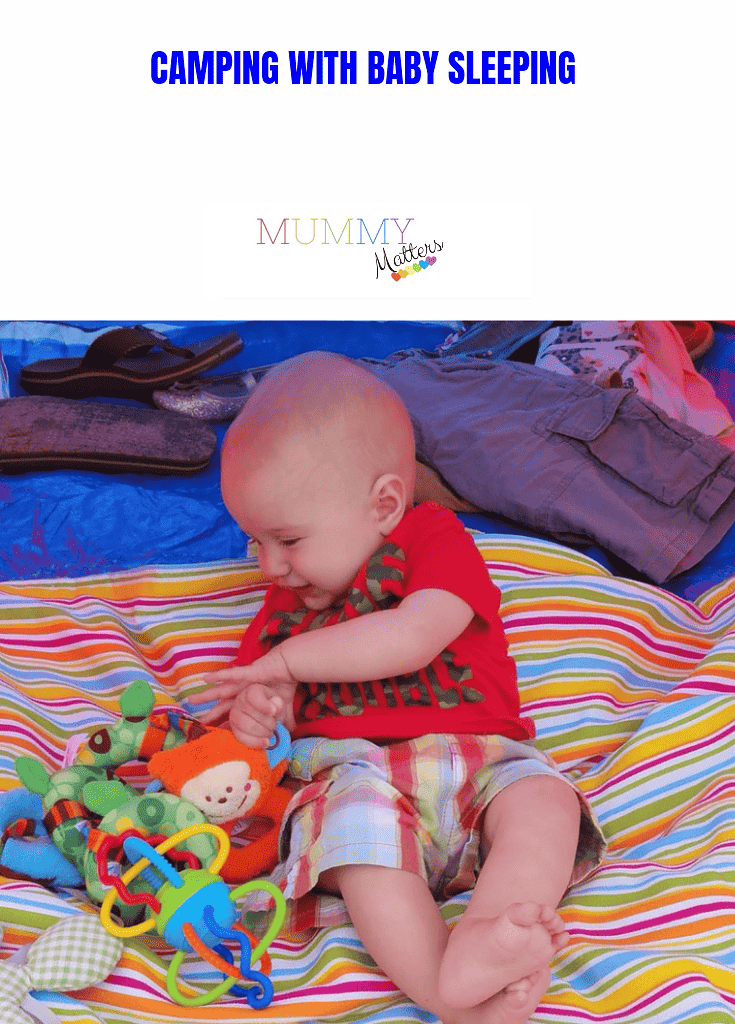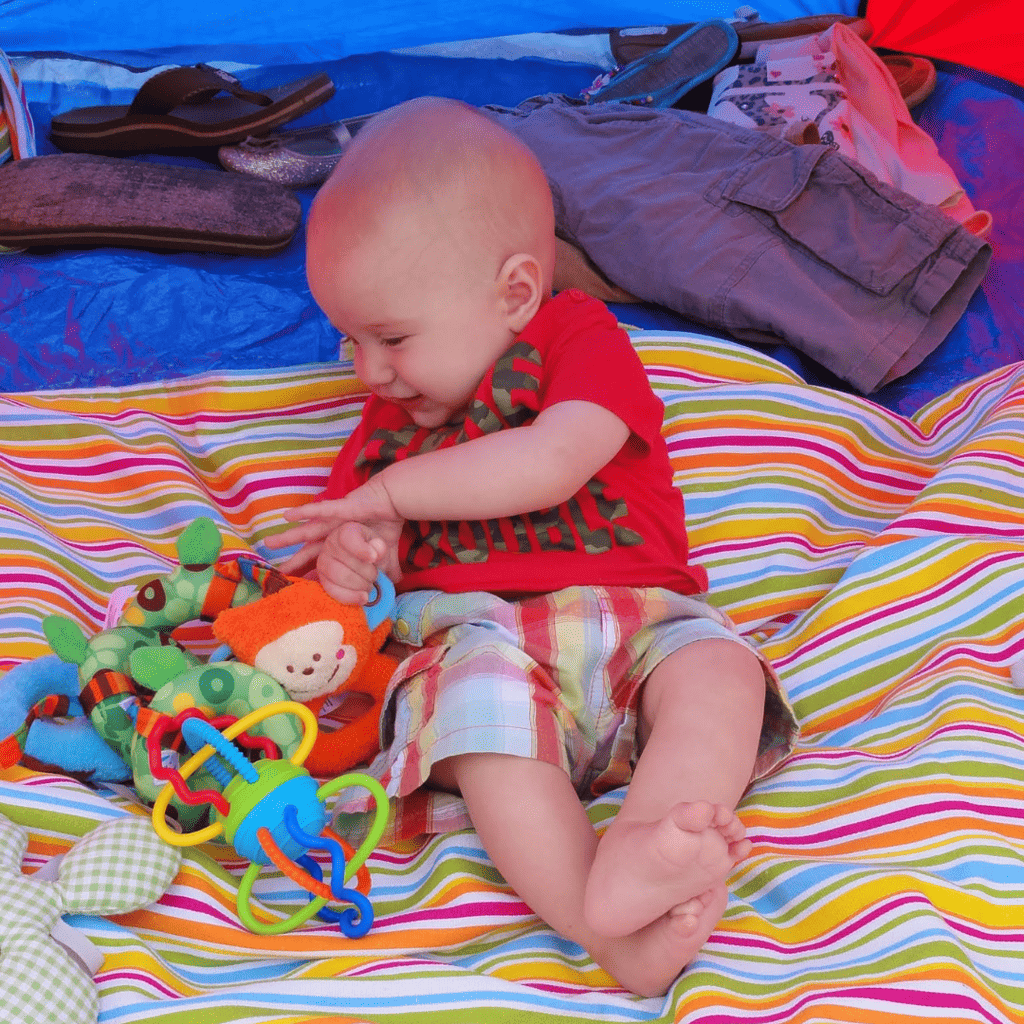Camping with a baby for the first time can seem like an overwhelming task, but it doesn’t have to be. With a little bit of preparation and planning, camping with baby sleeping can be an enjoyable experience for the whole family. However, the biggest challenge often lies in getting your baby to sleep comfortably while in the great outdoors.
In this article, we’ll provide you with some helpful top tips on how to camp with infants on the first trip and ensure that they get a good night’s sleep. From choosing the right gear to creating a comfortable sleeping environment, we’ve got you covered.
Camping with a baby, is it possible
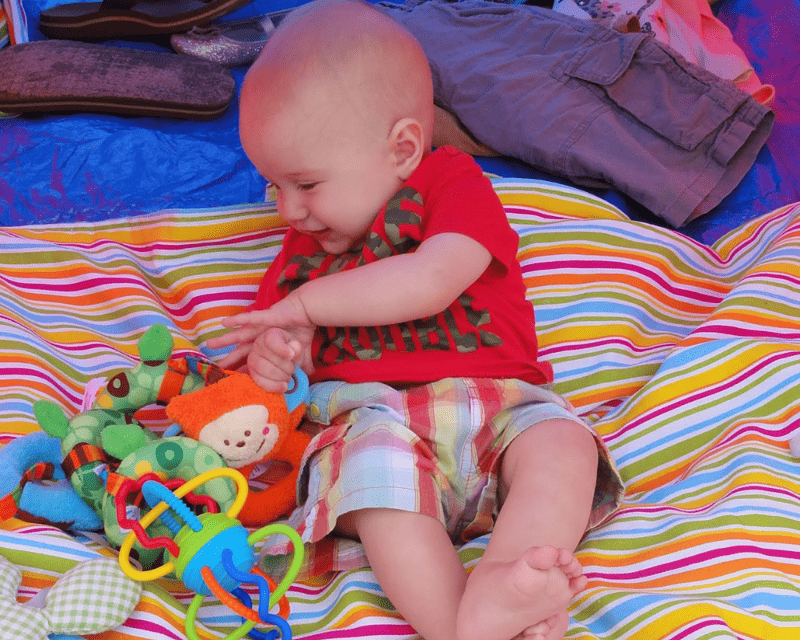
One of the most important things to consider is the age and temperament of your little one. If they are under 6 months old and not yet crawling or walking, camping with baby sleeping will be much easier than if they are mobile and getting into everything.
Another key factor is where you choose to camp. Look for campsites that offer amenities like running water, flush toilets, and showers. This will make it much easier to keep baby clean and comfortable during your trip. You may also want to consider bringing a portable crib or playpen so that your baby has a safe place to sleep and play.
Choosing the Right Sleeping Equipment
Choosing the right sleeping equipment is crucial for camping with baby sleeping comfortably and safely is essential to ensure an enjoyable trip for both you and your little one. Here are some factors to consider when selecting the best sleeping gear for your camping adventure.
First, think about the temperature range of your camping destination. Depending on where you’re going, you may need a warmer or cooler newborn baby sleeping bag or blanket to keep your baby comfortable throughout the night and also always maintain the baby’s temperature and body heat. Additionally, be sure to choose a sleeping pad that provides enough insulation from the ground’s cold temperatures.
Next, consider the size of the back pack gear. You’ll want to make sure it’s large enough to accommodate both you and your baby gear comfortably while also providing space for any additional items like diapers or clothes. Look for lightweight options that won’t weigh down your backpack but still provide ample room and support for your family’s needs.
Cots, Pack ‘n Plays, or Sleeping Bags
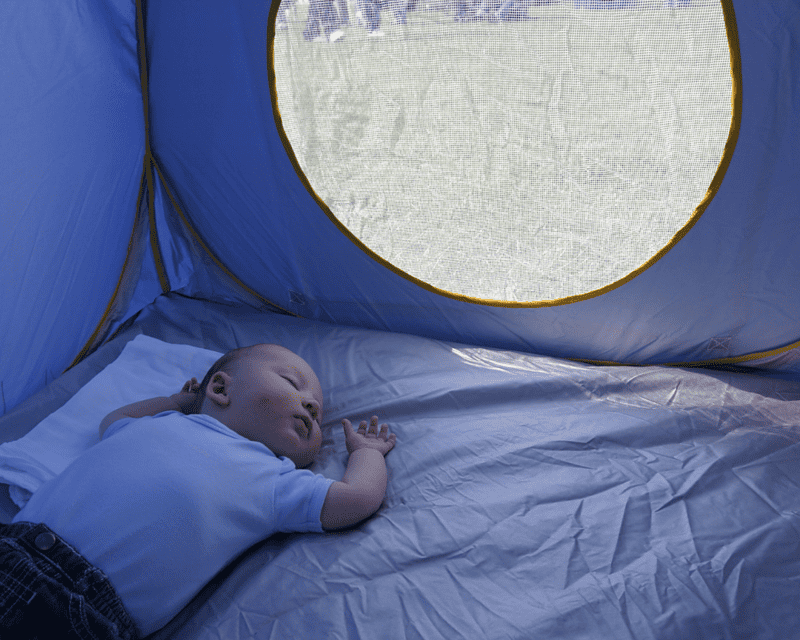
Camping with baby sleeping can be an exciting but daunting experience for new parents. One of the most important decisions to make is where your little one will sleep during your outdoor adventure. There are three popular options: travel cot, pack ‘n plays or sleeping bags.
Travel cots are a good idea offer a comfortable and elevated sleeping surface that keeps your baby off the ground. They provide excellent airflow and come in various sizes to accommodate different ages and weights. Cots are easy to set up and fold down, making them convenient for travel with young children. However, they can take up significant space in your camping gear and may not fit inside smaller tents or RVs.
Pack ‘n plays are versatile options that provide a safe playpen during the day and a comfortable sleeping area at night. They have built-in mattresses, mesh sides for ventilation and fresh air and come with removable covers for easy washing
Setting Up Camp
When setting up your campsite, choose an area that is flat and free from any hazardous objects such as rocks or tree roots. Set up your tent away from any potential hazards such as rivers or steep inclines. It’s also important to consider the weather forecast when setting up camp; make sure to pitch your tent in an area where it won’t be exposed to strong winds or heavy rain.
Investing in a good quality camping cot or air mattress for your child’s sleep will ensure that they have their own space and a comfortable and safe place to sleep while you’re out in nature.
Another important factor to consider when camping with baby sleeping is their routine.
Location and Safety Considerations
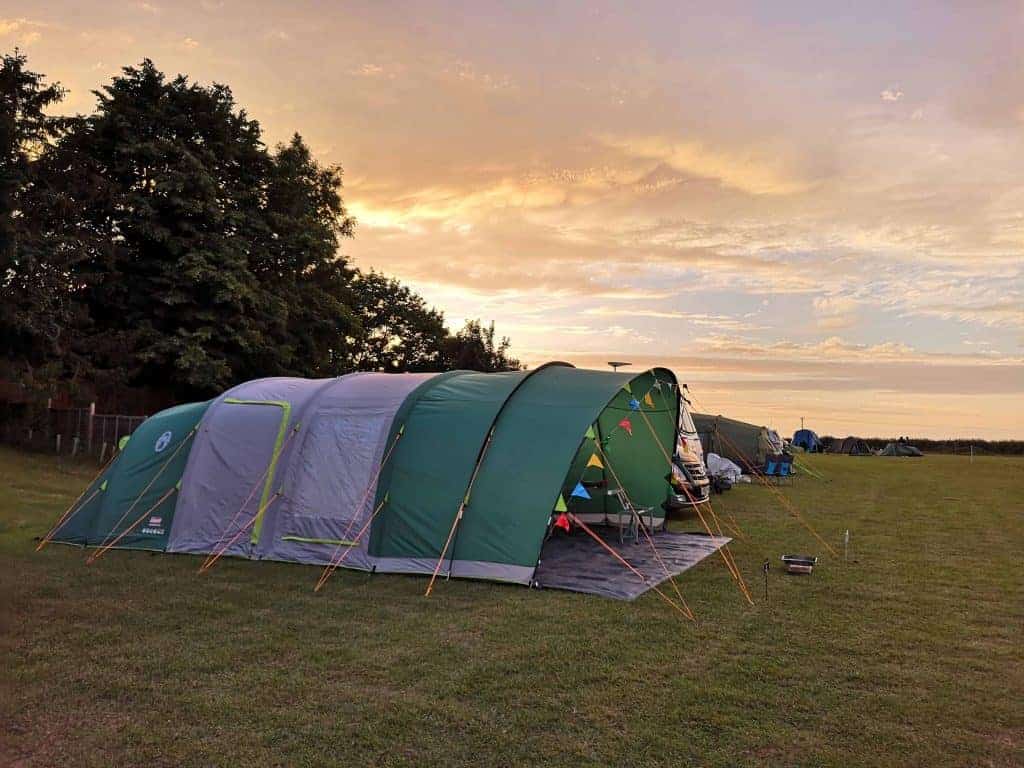
One of the most important things to consider when camping with baby sleeping is location with plenty of room. The ideal location for camping with a baby should be safe, accessible, and comfortable. You don’t want to choose a remote campsite that’s difficult to get to or located in an area without cell phone coverage in case you need help.
When choosing your campsite, make sure it’s located near water sources so you can easily access fresh water for drinking and cooking. Additionally, ensure that the site is level and free from hazards like rocks or tree roots which could pose tripping hazards. When setting up your tent, avoid areas where water may pool during heavy rain or low-lying areas where cold air may settle at night.
Safety considerations are also crucial when camping with baby sleeping.
Tips for a Good Night’s Sleep
A good night’s sleep is essential for both you and your new baby to enjoy the camping experience. Here are some tips for ensuring that everyone gets the rest they need:
1. Choose a comfortable sleeping surface: Whether you’re using a tent or an RV, make sure that your sleeping arrangements are as comfortable as possible. Invest in a
high-quality air mattress or sleeping pad that provides ample support and extra layers.
2. Stick to a routine: Even though you’re on vacation, it’s important to maintain your baby’s regular bedtime routine as much as possible. This is the best way to help them feel safer and more secure in their new surroundings.
3. Bringing familiar items from home is a great idea. Pack your baby’s favorite blanket, stuffed animal, or other comfort items that they associate with sleep time.
Noise machines, warm clothing, and routines
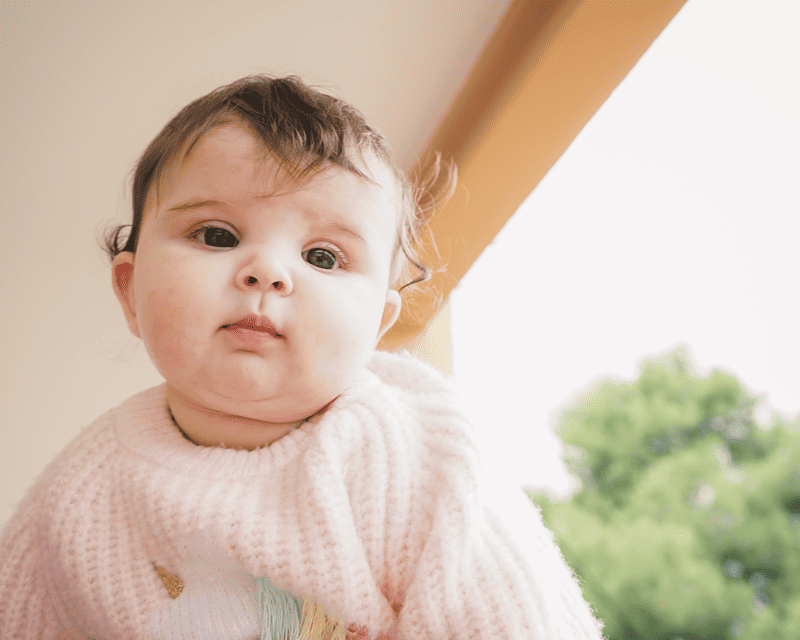
Sleeping arrangements are particularly difficult to navigate when camping with baby sleeping. Fortunately, there are several strategies that parents can use to help their baby sleep soundly while enjoying the great outdoors.
One effective tool and great option is a noise machine. These devices emit soothing sounds such as white noise app or ocean waves that can help drown out distracting noises in the campground. Additionally, bringing warm clothing for your baby is essential to ensure they stay comfortable throughout the night in their own sleeping bag. Dressing them in layers helps provide warmth and allows parents to adjust their child’s body temperature as needed.
Another key strategy is establishing a bedtime routine even while camping. Familiar routines signal to babies that it’s time for bed and help them relax and feel secure in their surroundings.
Dealing with Diapers in the Great Outdoors
One of the most important things to consider when camping with a baby is how to manage diaper changes when you’re in the great outdoors. The good news is that with some preparation and planning, dealing with diapers while camping doesn’t have to be a daunting task. Remember to pack all the necessary supplies, such as diapers, wipes, and a change of clothes. And to make your camping experience even more convenient, you might want to look into the practicality of nappy bags at Hannah & Henry Apparel. These bags offer a useful solution for keeping everything organized and ensuring a smooth diaper-changing process during your outdoor adventure.
First and foremost, ensure that you pack plenty of nappies enough for your entire baby camping trip. A general rule of thumb is to bring one diaper per hour of travel time plus extras for any unexpected situations. Consider packing disposable bags as well for easy disposal of dirty diapers. Another option is using cloth diapers which are eco-friendly and reusable, but require proper sanitation techniques while camping.
When it comes to changing diapers during camping trips and in the middle of the night, there are several options available depending on your preferences.
Disposing or packing out
One of the biggest challenges that comes with camping with a little one is figuring out how to dispose of or pack out their sleeping gear properly. When it comes to disposing of your baby’s sleeping items, it’s important to remember that leaving them behind in the wilderness can harm both animals and the environment.
Instead, opt for packing out any used diapers and wipes in a sealed bag along with your other trash. As for your baby’s sleep sack and gear, be sure to properly clean and store it before heading home. This includes wiping down any travel crib, mats or blankets and airing out any sleeping bags or tents. By taking these steps, you’ll not only keep the environment clean but also ensure that future campers can enjoy their trip without encountering any unwanted surprises.
Managing Expectations
While camping can be an exciting adventure, it requires careful preparation and planning to ensure that everyone is comfortable and safe. First thing, one of the most important aspects of camping with baby sleeping is managing expectations. This means having realistic expectations about what you can accomplish during your trip to the nearest town.
When it comes to sleeping arrangements, it’s important to plan ahead. Make sure you have a safe and comfortable place for your baby to sleep, such as a portable crib or bassinet. You may also want to bring along some familiar items from home, such as blankets, wool hat or toys, to help your baby feel more secure in their new environment.
Another key aspect of managing expectations while camping with a baby is being flexible. Your plans may need to change if your little one isn’t feeling well or simply needs some good sleep or extra attention.
Flexibility and patience key to success
Flexibility and patience are two essential components to a successful camping trip with baby sleeping. While it may seem daunting to embark on such an adventure, with the right mindset and planning, it can be an incredibly rewarding experience for both you and your little one. One of the biggest challenges when camping with a baby is ensuring they get enough sleep. However, by being flexible in your approach to nap times and bedtimes, you can minimize disruptions to their routine while still enjoying all that nature has to offer to you and possibly older kids
It’s important to remember that babies thrive on routine but also need time outside in nature. With this in mind with older babies, on first family camping trip consider adjusting their schedule slightly while camping so that they have ample opportunity to explore their surroundings during the day while still getting enough rest at night. Patience is a big deal as you work through any adjustments or disruptions that may occur along the way.
Conclusion: Enjoying the outdoors with your little one
Congratulations you are ready for the off! Camping is a great way to bond with your baby and create lasting memories. But before you head out into the wilderness, there’s one thing that can make or break your trip: sleeping arrangements. Once you’ve chosen the right sleeping arrangement, make sure to establish a bedtime routine similar to what your child has at home. This might include reading stories, singing lullabies, or just cuddling in the tent. Just enjoy your time in the outdoors and look forward to many more camping trips in the future.
For more camping with baby tips head over to the Camping and Caravanning Club.
